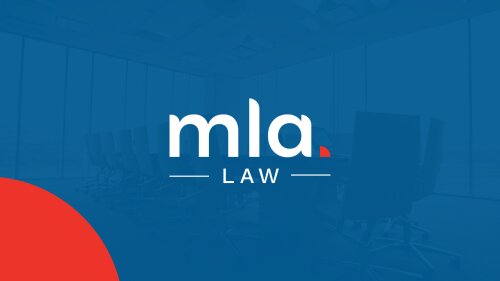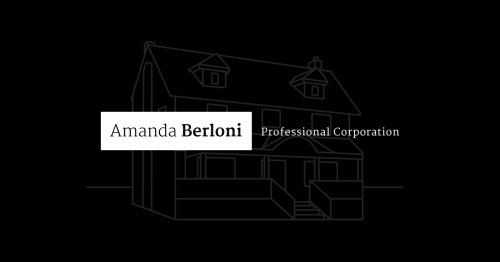Best Brokerage Lawyers in Greater Sudbury
Share your needs with us, get contacted by law firms.
Free. Takes 2 min.
Free Guide to Hiring a Real Estate Lawyer
List of the best lawyers in Greater Sudbury, Canada
About Brokerage Law in Greater Sudbury, Canada
Brokerage law in Greater Sudbury, Canada, primarily governs the rights, responsibilities, and legal requirements of professionals and firms engaged in brokering transactions-such as real estate agents, mortgage brokers, business brokers, and insurance brokers. These professionals play a crucial intermediary role, connecting clients to products, properties, or services and guiding complex transactions with legal and ethical considerations in mind. Sudbury, being part of Ontario, adheres to provincial statutes and local bylaws that pertain to brokerage activities, including licensing, disclosure obligations, and consumer protection measures.
Why You May Need a Lawyer
Legal assistance in brokerage matters can be essential for individuals and businesses involved in buying, selling, leasing, or otherwise transacting through a broker. Common situations include:
- Disputes regarding commission or fees between clients and brokers.
- Issues related to misrepresentation or non-disclosure of important facts during a transaction.
- Drafting or reviewing brokerage agreements and contracts.
- Compliance with provincial and municipal regulations and licensing requirements.
- Allegations of professional misconduct or negligence.
- Matters involving regulatory investigations or disciplinary proceedings.
- Complex transactions involving multiple parties or jurisdictions.
- Questions about fiduciary duty and broker-client confidentiality.
Consulting a lawyer early ensures your interests are protected and that you fully understand your legal standing, especially if there is a dispute or potential liability involved.
Local Laws Overview
In Greater Sudbury, brokerage activities are regulated by provincial legislation, primarily the Real Estate and Business Brokers Act, 2002 (REBBA) for real estate, and the Mortgage Brokerages, Lenders and Administrators Act, 2006 for mortgage brokers. Key aspects include:
- Licensing: Brokers must be licensed with the relevant provincial authority (e.g., Real Estate Council of Ontario for realtors).
- Disclosure: Brokers are legally obligated to disclose material facts and any conflicts of interest to their clients.
- Contracts: Written agreements are required for most brokerage relationships, outlining duties, fees, and limitations.
- Consumer Protection: The laws safeguard consumer interests by imposing standards of professionalism and mandating recourse options in cases of misconduct or fraud.
- Advertising Regulations: There are strict rules around advertising practices to prevent misleading or deceptive claims by brokers.
- Local Bylaws: In certain cases, local Greater Sudbury municipal bylaws or business licensing rules may also impact brokerage operations.
Depending on the type of brokerage, additional federal or provincial regulations-such as anti-money laundering rules or insurance statutes-may apply.
Frequently Asked Questions
What is a licensed broker, and why does licensing matter?
A licensed broker in Sudbury is an individual or business that has met specific education, examination, and ethical standards set by Ontario authorities. Licensing provides consumer protection and ensures adherence to legal and professional obligations.
How can I verify if my broker is properly licensed?
You can check broker licenses on the relevant regulatory body's website (e.g., Real Estate Council of Ontario for realtors, Financial Services Regulatory Authority of Ontario for mortgage brokers).
What should be included in a brokerage agreement?
Brokerage agreements should outline the scope of services, fees or commission structure, duration of agreement, responsibilities of both parties, and any special conditions or disclosures.
What rights do I have if a broker acts unethically or dishonestly?
You can file a complaint with the relevant regulatory authority, and you may also have civil remedies such as suing for damages if you have suffered a loss because of the broker's improper conduct.
Is it necessary to use a broker for real estate or other transactions?
No, it's not legally required to use a broker; however, brokers often provide access to expertise, market knowledge, and negotiation skills that can be beneficial, especially for complex transactions.
Who pays the commission or fees to the broker?
The payment arrangements vary and should be specified in the contract. In real estate, for example, the seller typically pays the commission, which is split with the buyer's agent.
What disclosures must my broker make to me?
Brokers must disclose any conflicts of interest, material facts affecting the transaction, the nature of their representation, and the details of any compensation they receive.
Can I cancel a brokerage agreement?
Most brokerage agreements contain provisions for cancellation. You may be required to provide notice or pay a cancellation fee, depending on the contract's terms.
How does the law protect consumers against broker fraud or misconduct?
Ontario regulates brokers through licensing, education, and disciplinary regimes. There are established complaint processes, potential fines, license suspension, and sometimes compensation funds for victims of fraud or theft.
When should I seek legal advice when dealing with a broker?
Seek legal advice when signing a brokerage agreement, facing a dispute, experiencing unethical conduct, or whenever you are unfamiliar with the obligations and protections involved in your transaction.
Additional Resources
- Real Estate Council of Ontario (RECO): Regulates real estate brokers and salespeople in Ontario. Provides public registry and complaint procedures.
- Financial Services Regulatory Authority of Ontario (FSRA): Regulates mortgage brokers, agents, and administrators. Offers licensing information and consumer disclosures.
- Local Law Associations: The Sudbury District Law Association can help you find nearby lawyers with brokerage expertise.
- Consumer Protection Ontario: Offers general guidance on brokerage transactions from a consumer protection perspective.
- City of Greater Sudbury: For local business licensing or bylaws relevant to brokerage operations.
Next Steps
If you need legal assistance with a brokerage matter in Greater Sudbury:
- Gather all documents related to your transaction (agreements, correspondence, payment records).
- Contact a lawyer with experience in brokerage law or the specific field (real estate, mortgages, business, insurance).
- Consider reaching out to the appropriate regulatory body if your issue involves licensing, misconduct, or regulatory compliance.
- Prepare a summary of events and your concerns to efficiently communicate with your legal adviser.
- If urgent, ask the law society or Sudbury District Law Association for lawyer recommendations who can assist on short notice.
- Continue to keep written records and avoid signing new agreements before obtaining legal advice.
Being proactive and informed will help ensure your legal rights are protected throughout any brokerage transaction or dispute.
Lawzana helps you find the best lawyers and law firms in Greater Sudbury through a curated and pre-screened list of qualified legal professionals. Our platform offers rankings and detailed profiles of attorneys and law firms, allowing you to compare based on practice areas, including Brokerage, experience, and client feedback.
Each profile includes a description of the firm's areas of practice, client reviews, team members and partners, year of establishment, spoken languages, office locations, contact information, social media presence, and any published articles or resources. Most firms on our platform speak English and are experienced in both local and international legal matters.
Get a quote from top-rated law firms in Greater Sudbury, Canada — quickly, securely, and without unnecessary hassle.
Disclaimer:
The information provided on this page is for general informational purposes only and does not constitute legal advice. While we strive to ensure the accuracy and relevance of the content, legal information may change over time, and interpretations of the law can vary. You should always consult with a qualified legal professional for advice specific to your situation.
We disclaim all liability for actions taken or not taken based on the content of this page. If you believe any information is incorrect or outdated, please contact us, and we will review and update it where appropriate.











